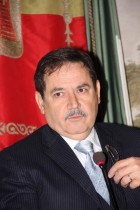Studying at the University of Verona
Here you can find information on the organisational aspects of the Programme, lecture timetables, learning activities and useful contact details for your time at the University, from enrolment to graduation.
Academic calendar
The academic calendar shows the deadlines and scheduled events that are relevant to students, teaching and technical-administrative staff of the University. Public holidays and University closures are also indicated. The academic year normally begins on 1 October each year and ends on 30 September of the following year.
Course calendar
The Academic Calendar sets out the degree programme lecture and exam timetables, as well as the relevant university closure dates..
| Period | From | To |
|---|---|---|
| Sem. IA | Oct 1, 2014 | Nov 16, 2014 |
| Sem. IB | Nov 17, 2014 | Jan 18, 2015 |
| Sem. IIA | Feb 23, 2015 | Apr 19, 2015 |
| Sem. IIB | Apr 20, 2015 | Jun 7, 2015 |
| Session | From | To |
|---|---|---|
| Sessione Estiva (Esami sospesi dal 14 al 16 luglio) | Jun 8, 2015 | Jul 31, 2015 |
| Sessione Autunnale | Sep 1, 2015 | Sep 30, 2015 |
| Sessione Invernale | Jan 18, 2016 | Feb 21, 2016 |
| Session | From | To |
|---|---|---|
| Sessione Estiva | Jul 14, 2015 | Jul 16, 2015 |
| Sessione Autunnale | Nov 10, 2015 | Nov 12, 2015 |
| Sessione Invernale | Mar 14, 2016 | Mar 17, 2016 |
| Period | From | To |
|---|---|---|
| Festa di Ognissanti | Nov 1, 2014 | Nov 1, 2014 |
| Festa dell'Immacolata Concezione | Dec 8, 2014 | Dec 8, 2014 |
| Vacanze Natalizie | Dec 22, 2014 | Jan 6, 2015 |
| Vacanze Pasquali | Apr 2, 2015 | Apr 7, 2015 |
| Festa della Liberazione | Apr 25, 2015 | Apr 25, 2015 |
| Festa dei lavoratori | May 1, 2015 | May 1, 2015 |
| Festa del S. Patrono S. Zeno | May 21, 2015 | May 21, 2015 |
| Festa della Repubblica | Jun 2, 2015 | Jun 2, 2015 |
| Vacanze Estive | Aug 10, 2015 | Aug 16, 2015 |
Exam calendar
Exam dates and rounds are managed by the relevant Humanistic Studies Teaching and Student Services Unit.
To view all the exam sessions available, please use the Exam dashboard on ESSE3.
If you forgot your login details or have problems logging in, please contact the relevant IT HelpDesk, or check the login details recovery web page.
Should you have any doubts or questions, please check the Enrollment FAQs
Academic staff
 cristina.bertazzoni@univr.it
cristina.bertazzoni@univr.it
 sonia.claris@univr.it
sonia.claris@univr.it
 laura.fontecedro@univr.it
laura.fontecedro@univr.it

Longo Mario
 mario.longo@univr.it
mario.longo@univr.it
 045 8028393
045 8028393
 elisabetta.madriz@univr.it; elisamadriz@libero.it
elisabetta.madriz@univr.it; elisamadriz@libero.it
 federico.melotto@univr.it; federicomelotto@hotmail.com
federico.melotto@univr.it; federicomelotto@hotmail.com

Migliorati Lorenzo
 lorenzo.migliorati@univr.it
lorenzo.migliorati@univr.it
 045802 8135
045802 8135
 igor.pelgreffi@univr.it
igor.pelgreffi@univr.it
 daniela.princivalle@univr.it
daniela.princivalle@univr.it
 sabrina.tosicambini@univr.it
sabrina.tosicambini@univr.it
Study Plan
The Study Plan includes all modules, teaching and learning activities that each student will need to undertake during their time at the University.
Please select your Study Plan based on your enrollment year.
1° Year
| Modules | Credits | TAF | SSD |
|---|
Cultural Anthropology
Developmental and educational psychology
Sociology and analysis of social dynamics
History of Philosophy
History of Education and Pedagogy
2° Year activated in the A.Y. 2015/2016
| Modules | Credits | TAF | SSD |
|---|
Teaching methodology and educational planning
Early Childhood Education
Computer Science and Multimedia
Theories and methods of cultural mediation
Social and Cultural Geography
3° Year activated in the A.Y. 2016/2017
| Modules | Credits | TAF | SSD |
|---|
Theories and techniques of the primary socialization
| Modules | Credits | TAF | SSD |
|---|
Cultural Anthropology
Developmental and educational psychology
Sociology and analysis of social dynamics
History of Philosophy
History of Education and Pedagogy
| Modules | Credits | TAF | SSD |
|---|
Teaching methodology and educational planning
Early Childhood Education
Computer Science and Multimedia
Theories and methods of cultural mediation
Social and Cultural Geography
| Modules | Credits | TAF | SSD |
|---|
Theories and techniques of the primary socialization
| Modules | Credits | TAF | SSD |
|---|
Legend | Type of training activity (TTA)
TAF (Type of Educational Activity) All courses and activities are classified into different types of educational activities, indicated by a letter.
Social and Cultural Geography [Cognomi M-Z] (2015/2016)
Teaching code
4S02383
Teacher
Coordinator
Credits
6
Language
Italian
Scientific Disciplinary Sector (SSD)
M-GGR/01 - GEOGRAPHY
Period
Sem. IIB dal Apr 25, 2016 al Jun 5, 2016.
Learning outcomes
By the end of the module students will be able to:
• Understand the inherent relevance of social and cultural geography to everyday life and to current issues and debates in contemporary society, adopting geography as a critical tool to interpret contemporary world.
• Understand key themes and concepts in social and cultural geographic scholarship, navigating theories, methods, historical developments and emerging debates within the discipline.
• Appreciate the pedagogical scope of social and cultural geography, relating geographical knowledge to a range of examples drawn from research and educational projects and case studies.
• Think geographically about society and culture, critically engaging with ideas in the module to show how they relate to everyday experience and relevant societal issues.
Program
Central theme: The module is structured around a core theme, that is the relationship between social and cultural geography and contemporary world. The chosen topics aim to clarify such a relationship by addressing a diversity of traditional and emerging ideas and fields of study within social and cultural geography.
The module will develop as follows:
FOUNDATIONS
• What is geography?
• The concept of ‘paradigm’; paradigms in geography.
• Geographical theories: German, French, British and American traditions.
• The concept of ’culture’ and the cultural studies revolution: the cultural turn in geography.
• Cultural geography and ‘New cultural geography’.
• The ‘social’ in geography: critical perspectives on issues of power, identity, difference and (inter)action.
• Representation and practice; the ‘performative turn’ and the new ‘non-representational’ geographies
• Italian social and cultural geography
KEY CONCEPTS
• Place
• Landscape
• City
GEOGRAPHIES OF MOBILITY: TOURISM, TRAVEL AND GEOGRAPHY
• Geographies of the ‘Other’ and ‘Elsewhere’ (notions of ‘self’ and ‘other’).
• Orientalism and ‘imaginative geographies’
• Tourist representations and imaginaries.
• Beyond representation: travel as embodied experience of the world. New phenomenology and the ‘more-than-representational’ approach in tourism geographies.
GEOGRAPHIES OF DIFFERENCE
• Geographies of gender
• Geographies of dis/ability
CHILDREN’S GEOGRAPHIES
• Re)thinking childhood practices, representations and spatial relations geographically.
• Case study: India.
DOING GEOGRAPHY
• Methodologies, approaches and techniques in social and cultural geography; qualitative methods.
• The key contribution of Postcolonial and Feminist theories.
BIBLIOGRAPHY
• Minca, C. and Colombino, A. Breve Manuale di Geografia Umana, Cedam, Lavis, 2012 (Introduction; Part I: chapters 1,2,3; Part III: chapter 8; Part IV: Introduction and chapter 10).
• Martinelli, C. La geografia culturale nel contesto della geografia umana “internazionale”, QuiEdit, Verona, 2015.
• Teaching material available on Moodle (e-learning platform).
Additional ‘essential’ readings will be indicated during the lectures; these readings are specific to each lecture‘s topic. Students are expected to double check lecture-specific bibliographies made available on Moodle in order to make sure that they have the complete list of ‘essential’ readings required for the exam.
FOR STUDENTS NOT ATTENDING CLASSES: extra required readings for the exam will be indicated in each lecture-specific bibliography, which will be uploaded on to the e-learning platform. These readings will be marked as “essenziali per non-frequentanti” (that is, ‘essential for students not attending classes’).
Examination Methods
Written exam.
Evaluation criteria will include:
• Knowledge of the module’s contents and topics
• Ability to engage critically with themes and ideas of the module and to support the discussion with evidence and examples.
• Appropriate use of geographical lexicon.
• Ability to communicate in a clear and coherent way.
• Correct use of grammar, punctuation, spelling and syntax.
Type D and Type F activities
Modules not yet included
Career prospects
Module/Programme news
News for students
There you will find information, resources and services useful during your time at the University (Student’s exam record, your study plan on ESSE3, Distance Learning courses, university email account, office forms, administrative procedures, etc.). You can log into MyUnivr with your GIA login details: only in this way will you be able to receive notification of all the notices from your teachers and your secretariat via email and soon also via the Univr app.
Graduation
Documents
| Title | Info File |
|---|---|
|
|
pdf, it, 99 KB, 13/10/23 |
|
|
pdf, it, 101 KB, 10/04/24 |
List of theses and work experience proposals
| theses proposals | Research area |
|---|---|
| Ambienti e contesti di lavoro con minori | Various topics |
| Analisi dei personal network di sostegno | Various topics |
| comunicazioni relative alla tesi | Various topics |
| Il teatro come contesto educativo | Various topics |
| I processi di globalizzazione culturale nella società contemporanea | Various topics |
| La social network analysis applicata allo studio dei contesti educativi | Various topics |
| L'educatore ed i progetti europei | Various topics |
| L'impegno associativo in ambito educativo | Various topics |
| Politiche sociali e contesti educativi | Various topics |
| Progetti di collaborazione con le istituzioni scolastiche | Various topics |
| PROPOSTE TESI AMBITO GEOGRAFICO | Various topics |
| Scuola e capitale sociale | Various topics |
Linguistic training CLA
Gestione carriere
Student mentoring
Practical information for students
Documents
| Title | Info File |
|---|---|
|
|
pdf, it, 325 KB, 02/05/23 |
|
|
pdf, it, 212 KB, 02/05/23 |
|
|
pdf, it, 131 KB, 02/05/23 |
Stage e Tirocini
Le ulteriori attività formative (crediti F) sono interamente coperte dall’attività di tirocinio “indiretto” (1 cfu) da svolgersi nel secondo anno e di tirocinio “diretto” (14 cfu) da svolgersi presso enti convenzionati per un numero complessivo di 15 cfu (375 ore). Chi è iscritta/o al curriculum servizi per l’infanzia è tenuta/o a svolgere il tirocinio presso nidi e servizi per la prima infanzia per almeno il 50% delle ore.
Il tirocinio professionalizzante (375 ore, pari a 15 cfu), è obbligatorio sia nella sua forma diretta che indiretta.
Il tirocinio indiretto, della durata di 25 ore a frequenza obbligatoria al 75%, si svolge in Università per 20 ore e in forma di lavoro individuale per 5 ore e consiste in un accompagnamento iniziale delle/degli studenti da parte dei tutor attraverso un percorso formativo dotandoli di conoscenze e strumenti adeguati a osservare, comprendere e rielaborare criticamente l’esperienza di tirocinio nei servizi educativi e ad affrontare il tirocinio negli enti con metodo e consapevolezza. Il percorso, da attuare in gruppi da 20-25 persone sotto la supervisione di un tutor, risponde alle esigenze costantemente espresse sia dalle/dagli studenti stessi sia dalle parti sociali che dai referenti degli enti convenzionati.
Il tirocinio diretto si propone di raggiungere i seguenti obiettivi:
- fare esperienza diretta di attività professionali, che richiedono un livello di preparazione al lavoro educativo;
- approfondire in particolare il rapporto tra preparazione teorica, acquisita mediante lo studio, ed esperienza pratica, tra mondo del sapere e della cultura e mondo del lavoro e delle professioni;
Al termine del tirocinio diretto lo studente deve presentare una relazione scritta, nella modalità concordata con il tutor accademico.
Nuove Linee Guida per il tirocinio di Scienze dell'educazione.
- Tutte le informazioni in merito agli stage per futuri studenti sono disponibili alla pagina Stage e tirocini.
- Tutte le informazioni in merito agli stage per studenti iscritti sono pubblicate in MyUnivr - come fare per - stage e tirocini.
- Tutte le informazioni in merito agli stage per le aziende sono disponili alla pagina Stage e tirocini per azienze.
Documents
| Title | Info File |
|---|---|
|
|
pdf, it, 302 KB, 16/07/21 |






























